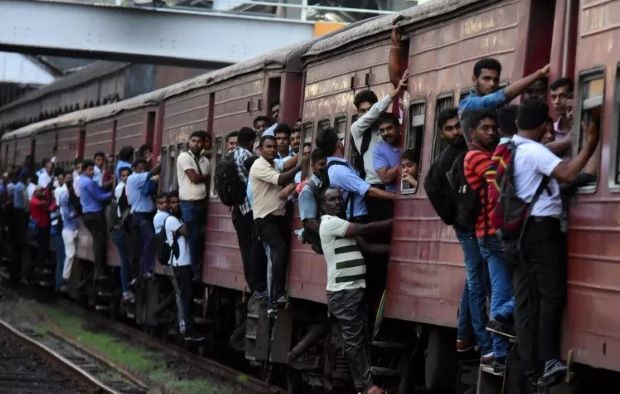Railway unions defy presidential decree, continue train strike
COLOMBO – Sri Lanka’s railway unionists defied a presidential decree to continue a railway strike inconveniencing thousands of commuters, a day after reports that a youth affected by the strike was killed in a tragic accident.
Deputy General Manager (Traffic), Department of Railways, N. J. Indipolage told reporters on Wednesday (13) 37 trains had to be cancelled in the morning due to the strike.
“There are 52 train services, both long distance and office-commute, in operation today, 36 of which are office trains. This morning, 37 short-distance trains had to be cancelled,” he said, warning that if the strike continues, more trains will have to be cancelled.
Indipolage, also added that the department’s general manager will meet the trade union members on strike and instruct them to stop the strike. “Further action will be taken depending on their response,” he said.
President Ranil Wickremesinghe on Tuesday (12) declared railways an essential service after reports emerged of a 20-year-old, who had ridden on the roof of an overcrowded train had been killed in an accident.
Transport Minister Bandula Gunawardena at Tuesday’s cabinet press briefing laid the blame for the youth’s death squarely at the door of the trade union on strike.
Indika Dodangoda, convener of a collective of railway unions, told reporters on Wednesday that the unions have been compelled to take action due to the government not paying attention to their demands.
“We saw that the railway service was declared an essential service yesterday. There is serious concern over the legal basis of that move. It is clear that the government is trying to suppress trade unions using this,” he said, warning the government that further moves to suppress unions without listening to their grievances would result in more convenience to the public.
Trade unions continued their strike on Wednesday, ignoring the presidential order. Thousands of passengers were seen risking their lives to get to work in the few trains that were available, with many barely hanging onto the footboards and braving the rain.
The strike was launched by the Sri Lanka Locomotive Operating Engineers Union effective midnight Monday (11) over a number of demands, including issues regarding salary increments.
Thousands of passengers were observed being greatly inconvenienced by the trade union action at railway stations along the busy coastal lines.
Minister Gunawardena’s allegation against the union comes in the context of trade unions across different sectors being a thorn in the side of the government, with many unions organizing protests over the past few months against reforms prescribed by the International Monetary Fund (IMF). The ruling Sri Lanka Podujana Peramuna (SLPP) which he represents has drawn protests from unions as well as ordinary citizens for its role in the worst currency crisis the country has seen in decades, which critics say threw millions into poverty.
-economynext.com



Comments are closed, but trackbacks and pingbacks are open.